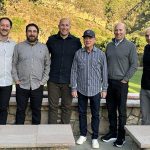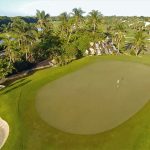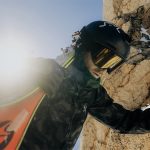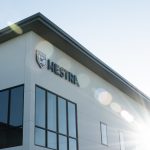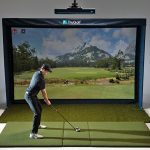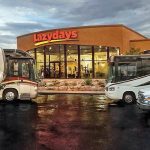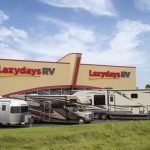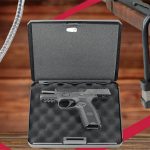The auction for Thule has come to an end with British buyout shop Candover winning out as the brands new owner. EQT Partners, Thules former owner, opted to offer the company up for sale instead of conducting an initial public offering on the Stockholm exchange as they had initially announced earlier this year. The final purchase price was 465 million ($595 million), with Candover beating at least four other financial buyers.
Sources close to the deal have confirmed that EQT nearly quadrupled their investment over the course of five years with the sale. Thule is posting a very strong year in 2004 so far with SEK 2,170 million ($270 mm) in sales for the first nine months, a 22.7% gain from SEK 1,769 million ($215 mm) in the YTD period last year. Currency-neutral growth was pegged at 25.3% for the period.
Thule also saw a 37.9% increase in operating profit for the nine-month YTD period to SEK 273 million ($36.5 mm), or a 12.6% operating margin, while gross profit margin remained somewhat flat, improving 10 basis points to 36.8% of sales. Net profit jumped 69.4% to SEK 144 million ($19 mm) versus SEK 85 million ($10 mm) in the YTD period last year.
For the third quarter, Thule saw net sales increase 27.0% to SEK 729 million ($97 mm) from SEK 574 million ($108 mm) in Q3 last year. GM slipped 20 basis points to 36.2% of sales, but EBIT jumped 42.9% for Q3 to SEK 90 million ($12 mm), or 12.3% of sales. Net income surged 77.8% to SEK 48 million ($6.5 mm) from SEK 27 million ($5.0 mm) in the year-ago quarter.
The net debt-to-equity ratio was 0.9, with Thule posting Debt of SEK 828 million ($113 mm) at quarter-end. Cash on hand was SEK 77 million ($10 mm) Return on capital, excluding goodwill & amortization was 40.2%. Inventories were up 60.7% at quarter-end to SEK 458 million ($62 mm).
Europe and Asia accounted for 43% of total sales and North America comprised 22% of the total. The Trailers, Snow Chains, and Car Rails businesses accounted for the balance of the business.
Thule said North American operations had to deal with “softer economic conditions and lower consumer spendings”, referring to a “generally weak U.S. economy, higher gas prices, lower air fares and reduced private consumption.” Management highlighted the U.K. and France markets as part of a “very good summer season” in the Europe/Asia division. They said Germany recovered during September despite the generally soft economic conditions.
Thule is boasting 40% worldwide market share in auto racks.
Over the past year Thule has acquired a recreation trailer company, C&C Distributors, Inc. of Winslow, Maine, and a European automobile snow-chain manufacturer, König, S.p.A. These acquisitions boosted the companys year-to-date sales by roughly $27 million.
BOSS spoke with Thules North American president, Fred Clark, who said, “This had a lot to do with a strong track record, and great sales growth. We also have strong systems in place with IT, so we can support future growth, and really we are the only global company in this category.”
The price tag on the deal represents a pretty good premium for the sporting goods industry, with most recent deals in the range of 1x to 1.2x annual sales, or 7.5x to 8.0x EBITA. Candover reportedly paid about 1.7x trailing twelve-month sales and 16x EBIT over that period. The private equity firms £2.7 billion ($4.9 billion) fund is now 60% invested. There were no strategic buyers in the final auction, leaving Candover in the running with Investcorp, Montagu Private Equity Ltd., Nordic Capital and Warburg Pincus LLC.
“Candover really invested in the company,” said Clark when asked about the high final sale price. “We laid out our strategic three-year growth plan, and they really believed in it.”
Most of the companys opportunity for growth should come from the booming eastern European markets and the billions of potential consumers in China. Thule currently has a sales infrastructure in place in both regions to take advantage of these emerging markets.
Royal Bank of Scotland Group plc and UBS Investment Bank will provide debt financing for Thule, who is expecting a minimum of 10% organic growth over the next three years. Candover is expected to inject a large amount of capital into the business to fund future acquisitions.
Clark told BOSS that other than the additional capital for acquisitions, not much will change at Thule N.A. “We were owned by one private equity firm, and now we are owned by another,” he said. Candover has stated that there will be no changes to Thule personnel in connection with the deal, and management will take a 20% equity stake in the company.
Thules production capabilities were also cited as one of the reasons for the premium paid. The company has plants in most of the markets is services, and according to Clark, about 80% of what is sold in North America is made in North America. This gives Thule flexibility to fill in-season orders and reduce their spending on speculative inventory. About 20% of the product shipped each day is made that same day.
Clark sees the biggest opportunity for growth in North America from the recently acquired recreational trailers division. The divisions first wave of pre-season orders has been received and Thule has started to deliver product. The companys annual report stated that the brand transition is now complete and all new trailers will bear the Thule name.

